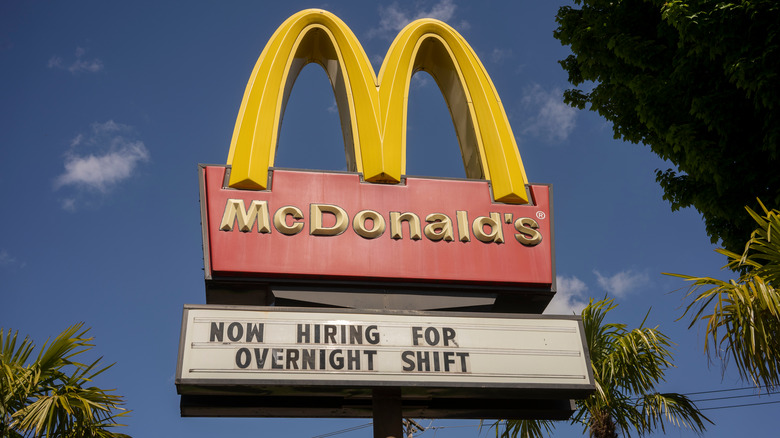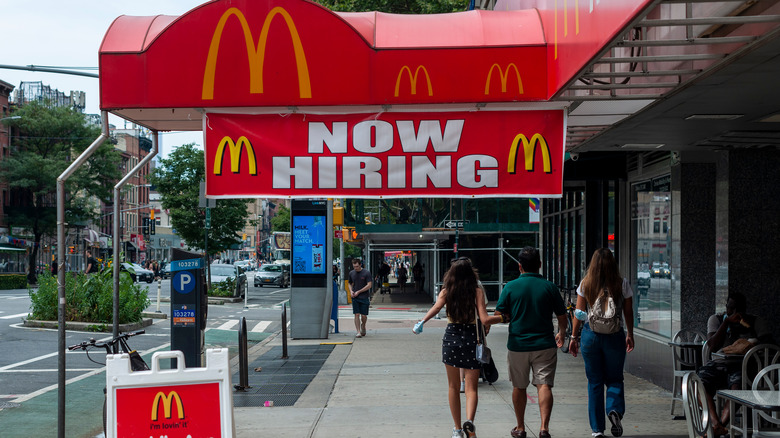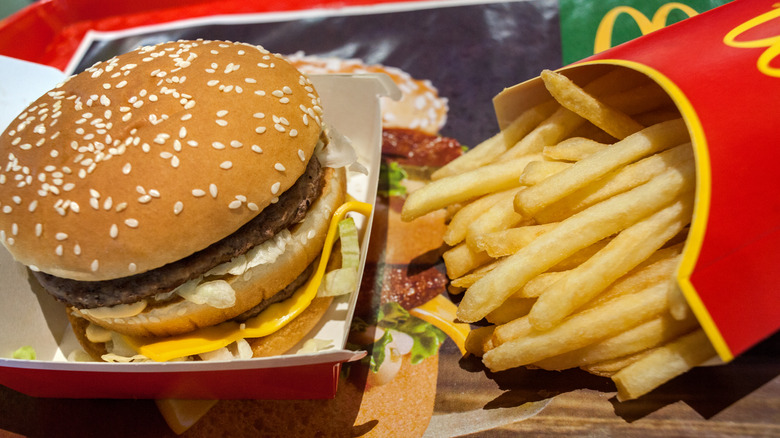Another Viral Tweet Highlights How Little McDonald's US Pays Compared To Denmark
It seems like whenever someone wants to highlight conditions in America, comparisons to Denmark arise. A recent tweet, authored the day before Thanksgiving, has garnered over 34,000 likes and 11,000 retweets. It focuses, again, on the difference between wages, benefits and costs in the two countries.
The tweet, posted by Andrea Junker (@strandjunker), reads: "McDonald's USA—Employee: $9/hr, no benefits, Big Mac: $5.65; McDonald's Denmark—Employee: $22/hr, 6 weeks vacation, 1 year paid maternity leave, life insurance, pension; Big Mac: $4.74. Tell us more about how raising the minimum wage would affect the cost of hamburgers."
Yes, the tweet is accurate. The standard wage for adult McDonald's workers in Denmark is $21/hour. McDonald's employs more than 210,000 workers in 36,000 locations around the world. While pay for Americans in the McD's uniform varies, the average for a shift manager at the iconic food chain here in the land of opportunity is $11/hour.
What's the deal?
This is not the first time that this assertion has been made, or that McDonald's, the world's fast food superpower, has come under fire. AOC has called them out, as she continues to give voice to the conditions that the average American worker faces.
So why does McDonald's in Denmark compensate their workers so much better? And why has that not affected the price of the Big Mac? The answer to the first question is pretty simple: unions. According to Truth or Fiction, when McD's decided to enter the Danish market in the 1980s, they were met with opposition from trade unions pretty much across the board. The unions called for boycotts and strikes, and in 1989 the chain agreed to comply with their hotel and restaurant agreement concerning expected wages and working conditions, Jacobin reports.
Union membership stateside has declined since the 'greed is good' era of American economics, falling, per Time, to 10.8% of the American workforce as of 2020. Union membership is voluntary in Denmark, and, according to IDA, over 70% of Danish workers belong to a union.
Happiness and the Big Mac
And how to account for the fact that, according to Newsweek, Americans pay more for a Big Mac than the Danes? If a Big Mac costs more in America, but the Danish burger-flipper earns significantly more, where is the money going? Armchair economists will offer varying answers to this question, but it is worth noting that the pay ratio of CEOs to unskilled workers is 48/1 in Denmark — as in, CEOs there make 48 times more money than the "average worker" — while here it's a whopping 354/1 (via Washington Post).
Those prolific social media experts offer all kinds of responses to this kind of data. One response to Junker's tweet called out the Danish tax rate, asserting that employees often pay 40%-50% in taxes. What they get in return for their tax money is a different story — Denmark is often recognized as the world's happiest country, per Visit Denmark.
Plus, at their McDonalds locales, Danish people can treat themselves to a Homestyle Pickled Red Onion Big Mac, or a Homestyle Bearnaise sandwich created by a Michelin-starred chef (via Street Food Guy and Eat This, Not That!). Is this why they're all so happy? Or could it have something to do with "Janteloven," a concept seen as integral to their mentality and culture, which basically posits that no one is better than another, everyone is equal and accepted? Perhaps being adequately compensated for their work has something to do with it? Go figure.


